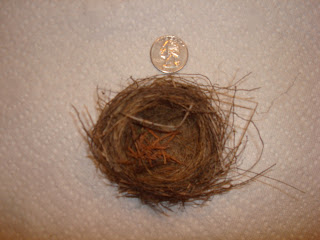 |
| Abby and me attired loyally to see Indiana, with Damon Bailey, take on U.C.L.A. at Tip-Off Classic XIII, on Friday, November 15, 1991, in Springfield, Mass. UCLA 87 - Indiana 72. |
Friday, November 23, 2012
Welcome, College Basketball Season
Sunday, November 18, 2012
RIP: Marcel Proust: July 10, 1871 - November 18, 1922
Sunday, November 11, 2012
Eastham Congregational & Soldiers Cemetery
To observe Veterans Day I drove up the road to the Eastham Congregational & Soldiers Cemetery. A prominent memorial is dedicated to the citizens of this town who died in the Civil War.
I'm curious to know the distinction of Samuel Nickerson, Jr. designated as "killed" against the other six having "died." ... Disease? Starvation?
Home Events: Hurricane Sandy & Election Day
Hurricane Sandy provided fierce winds ... it was exciting, after driving to Coast Guard Beach and then to Nauset Light Beach, to have my hat blown away (but rescued by my friend Ellen), and to feel the raging wind rock the truck, and to watch the fierce churning power of the Atlantic ... fortunately there was not a lot of damage on my Dory Lane piece of Cape Cod. Behind the house next-door to my north, twenty feet of an oak tree's top snapped and fell to the ground, but damaged nothing, and behind the next-door house to my north, three eight-feet long sections of the six-feet high perimeter fence collapsed. And a very small bird's nest blew in from somewhere to rest next to our front door step. I haven't been able to identify what species of bird created this tiny marvel of engineering; I guessed it must be a hummingbird nest, but Google images threw that guess away. Now I'm thinking: nuthatch or finch, but don't really know.
At about 1:30AM on November 7th, having stayed up until Romney's concession speech, I noticed that the hibiscus in the foyer had produced three blossoms; an exuberance, I assumed, to celebrate that our country chose a dignified, intelligent, sensible, and decent man, a man who aims to follow the teachings of Christ, to serve as President for four more years.
Wednesday, November 7, 2012
RIP: Albert Camus - Nov 7 1913 - January 4, 1960
 |
| Albert Camus |
 |
| Tattered but treasured .... |
Camus was born and grew up in Algeria. His French father was killed in World War I's Battle of the Marne; his mother, of Spanish extraction, was nearly deaf and illiterate. I don't know how long she lived but I hope long enough to see the youngest of her two sons win the Nobel Prize for Literature in 1957.
The Nobel selecting committee cited Camus' "important literary production, which with clear-sighted earnestness illuminates the problems of the human conscience in our times."
Camus was the first African to win the Nobel for Literature, though this distinction is rather akin to John Kerry's wife, Teresa Heinz Kerry, born in Mozambique, and white as white can be, and one of the richest women in the world, referring to herself as an African-American -- I mean no disparagement here -- not towards Heinz Kerry nor towards Camus; they had nothing to do with the geography of their birth nor the color of their skin -- but I am aiming merely to point out that it would seem more fitting if the first literature Nobelist from the dark continent had been a writer with dark skin.
In his essay "The Wind at Djemila" Camus wrote:
But men die in spite of themselves, in spite of their surroundings. They are told: "When you get well . . . ," and they die. I want none of that. For if there are days when nature lies, there are others when she tells the truth. Djemila is telling the truth tonight, and with what sad, insistent beauty! As for me here in the presence of the world, I have no wish to lie or to be lied to. I want to keep my lucidity to the last, and gaze upon my death with all the fullness of my jealousy and horror. It is to the extent I cut myself off from the world that I fear death most, to the degree I attach myself to the fate of living men instead of contemplating the unchanging sky. Creating conscious deaths is to diminish the distance that separates us from the world and to accept a consummation without joy, alert to rapturous images of a world forever lost. And the melancholy song of the Djemila hills plunges this bitter lesson deeper in my soul.
Camus was killed in an automobile accident. Surely, in that circumstance, there was not the wished-for moment for him to contemplate the great loss of nature's beauty.
 |
| Car in Villeblevin in which Camus died. |
Camus is buried in the small Provencal town of Lourmarin. I was not aware of this when in 2010, in another small Provencal town called Faucon, I visited the grave of Violette Leduc (unconstant soul that I am, I sometimes, when asked, name her as my favorite writer), or I'd surely have inveigled my brother/traveling companion, with his first-class command of the French language, to arrange a train/bus/taxi bus outing to Lourmarin, just as I'd enticed him to arrange a train/bus/taxi trip to Faucon, where, in an article in that town's monthly newspaper which reported my Leduc pilgrimage, he was referred to not by name, nor as the pilgrim's brother, but merely as George Fitzgerald's traducteur.
Subscribe to:
Comments (Atom)






